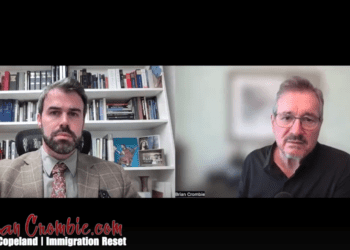In a column special to the Financial Post, Philip Cross, MLI Research Coordinator, takes aim at US Federal Reserve Chairman Ben Bernanke’s decision to keep interest rates ultra low until the unemployment rates hit 6.5%. Cross argues that unemployment rates are not a good indicator of labour market conditions, something Bernanke himself has previously acknowledged.
Philip Cross, Special to the Financial Post, July 24, 2013
The Federal Reserve Reform Act of 1977 codified a dual mandate for the Federal Reserve Board of “maximum employment” along with “stable prices.” The Act never clarified which was the priority, although since the days of Paul Volcker the Fed has emphasized low inflation.
Earlier this year Fed Chairman Ben Bernanke added a third target for monetary policy, when the Fed announced that it would keep interest rates ultra low until the unemployment rate hit 6.5%. The problem with focusing on the unemployment rate is that it’s the product of two variables — employment, which the Fed can directly influence, and labour force participation, which is impacted by social and demographic forces outside of the Fed’s control as well as economic conditions.
The reason the unemployment rate is not a good barometer of labour market conditions has been clearly demonstrated during the recovery in the U.S. Since mid-2009, the share of Americans employed has risen only half a percentage point as a result of an historically weak recovery. Nevertheless, the unemployment rate has fallen as fast as in a typical recovery, from 10.0% to 7.6%, largely because fewer Americans were actively looking for work. The reasons for this withdrawal from the labour force range from an ageing population opting to retire to a mysterious increase in disability claims (cynics detect more than a whiff of fraud in the sudden jump in disability).
In July, Bernanke acknowledged problems analyzing the unemployment rate when he clarified that 6.5% was “a threshold, not a trigger” because “the unemployment rate probably understates the weakness of the labour market.” So just months after specifying a target for the unemployment rate, he questioned its very usefulness as a gauge of labour market performance. Bernanke seemed to understand the pitfalls of unemployment as one guide for monetary policy, but did not abandon its use in formulating policy.
Compounding this folly, during his testimony to Congress on July 17 Bernanke was asked if he agreed with the IMF’s assessment that fiscal restraint was hampering the recovery. He could have replied by questioning the IMF’s credibility after it admitted earlier this year that it had incorrectly estimated the impact of fiscal restraint on the EU. Instead, he endorsed the IMF’s analysis, saying that fiscal tightening remained the greatest risk to growth over the next few quarters. He cited estimates that tax hikes early in the year and mandatory spending cuts resulting from the sequester together lowered real GDP by 1.5%, concluding that since real growth was steady at about 2%, this meant growth would have been 3.5% without budget cuts.
The head of the Federal Reserve Board should know that speculating about the impact of fiscal policy is risky business. It is well established in rational expectations theory that people change their behaviour based on expectations; for example, a fiscal policy of large deficits implies future tax hikes, so consumers spend less, offsetting part (or even all) of the stimulus of deficits. Clearly the recovery of the U.S. private sector has picked up this year, notably consumer demand for autos and housing. It isn’t a coincidence that Americans became more confident about buying these big ticket items in 2013 after highly-publicized actions finally were taken to curb the fiscal deficit. You can’t naively assume, as Bernanke did, that private sector spending would have accelerated at the same pace if fiscal profligacy had continued unabated. How can the Chairman of the Federal Reserve Board maintain credibility and pretend to have never heard of rational expectations, a theory in circulation since the 1970s?
Investors complain loudly about the difficulty of understanding the Fed’s thinking, as shown during the rout in bond markets early in July after the announcement of a tapering of bond purchases under the quantitative easing program. It is easy to see why investors are confused. First Bernanke says unemployment must reach a certain level before tightening monetary policy, but later he says unemployment isn’t a particularly good indicator of labour market conditions. Then Bernanke talks as if he doesn’t understand the basic tenets of rational expectations theory, and further muddied the waters by saying the Fed would not taper but expand bond purchases if the economy worsened.
Hopefully, Bernanke’s replacement next January as chair of the Federal Reserve Board will be more consistent and skilled at communicating Fed policy. One Congresswomen said to Bernanke in his last appearance before Congress that “You have never been boring.” As in Canada, a less rock star-style central banker could be more stimulating.
Philip Cross is Research Coordinator with the Macdonald-Laurier Institute and the former Chief Economic Analyst at Statistics Canada.




